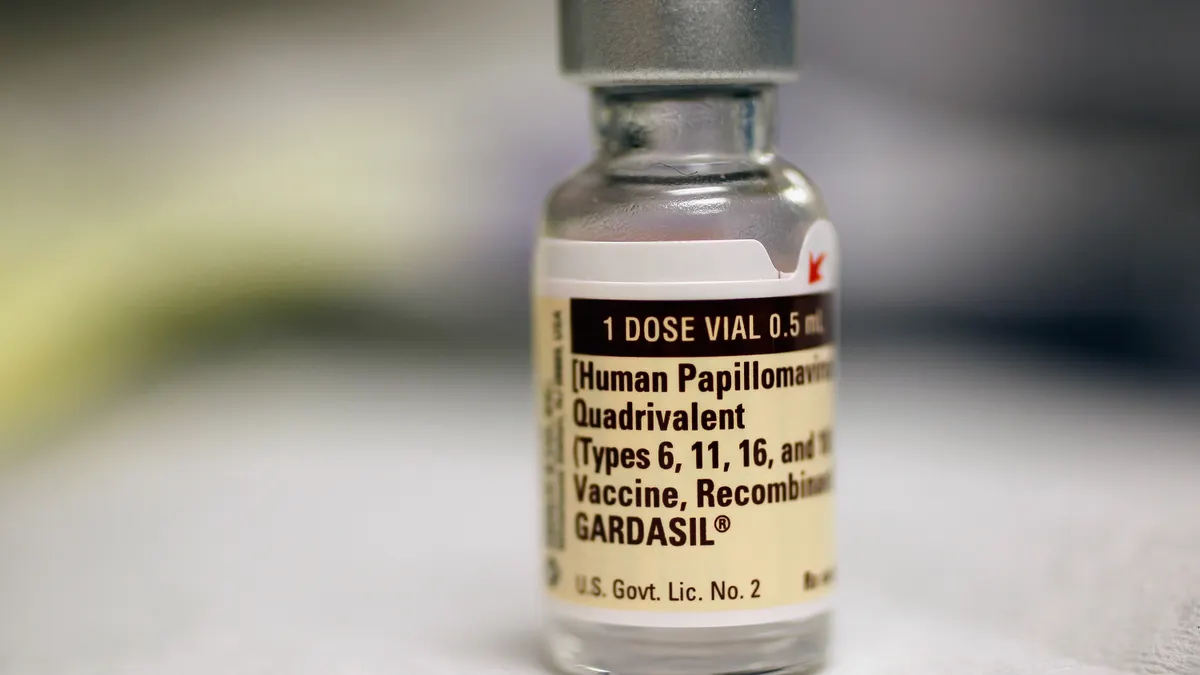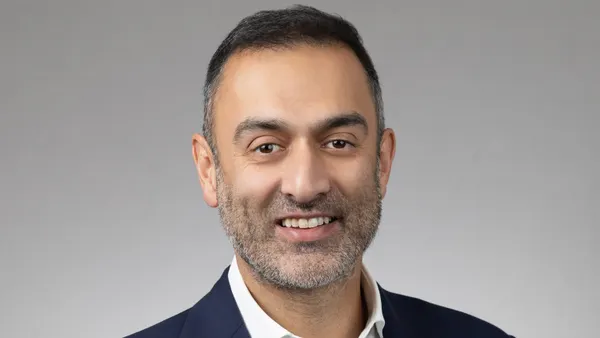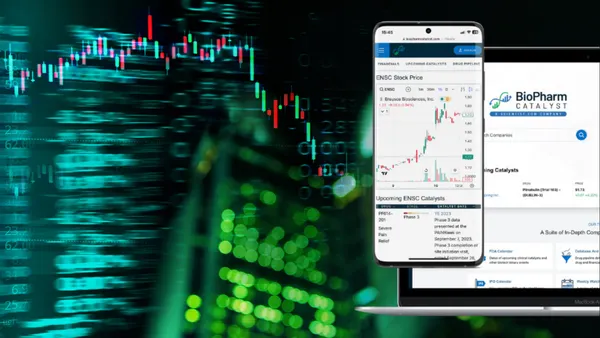Dive Brief:
- Merck & Co. said Tuesday it is pausing shipments to China of its human papillomavirus vaccine Gardasil to ease rising inventory at its marketing partner amid an extended slump in demand. As a result, company executives said they are no longer setting a target of $11 billion in Gardasil sales by 2030.
- The pause will begin this month and continue “through at least mid-year,” in order to “facilitate a more rapid reduction of inventory and help support the financial position of our important and valued partner,” Zhifei Biological Products, CEO Rob Davis said during Merck’s fourth quarter earnings call.
- Merck shares fell by as much as 12% in morning trading as investors reassessed their outlook on the company’s second-biggest product. Leerink Partners analyst Daina Graybosch cautioned against too much pessimism, writing “this continued uncertainty is likely driving more downside than warranted.”
Dive Insight:
The issues with Gardasil sales in China emerged six months ago when Merck announced the first initial drop in sales. At the time, Merck executives said a number of factors may have led to the declines, including an anti-corruption probe aimed at some non-Chinese companies that have affected the market for medical products.
In the most recent call, Davis blamed “increased pressure on discretionary consumer spending,” and that demand for the shot “has not recovered to the level [Merck] had expected.”
Full-year 2024 sales of Gardasil shrank 3% to $8.6 billion, following flat sales through the first six months of the year and double-digit declines in the third and fourth quarters. China is the largest market for Gardasil outside of the U.S., accounting for 60% to 70% of overseas sales.
Executives, however, remained optimistic about re-establishing growth in China. “China still represents a significant long-term opportunity for Gardasil given the large number of females, and now males with our recent approval, that are not yet immunized,” Davis said.
Gardasil’s issues shadowed an otherwise largely positive quarter for Merck. Its biggest seller, cancer immunotherapy Keytruda, grew 21% over the previous year to $7.8 billion in the fourth quarter, and for the full year recorded sales of $29.5 billion. That helped drive overall sales up 7% for the quarter to $15.6 billion compared to 2023. Full sales for the year also rose 7% to $64.2 billion.
The main patent for Keytruda is nearing patent expiration in 2028, but Davis expressed optimism that a subcutaneous formulation as well as experimental drugs for cancer and infectious diseases in late pipeline development will help Merck “successfully navigate” the loss of exclusivity of a drug that accounts for nearly half of its revenue.














